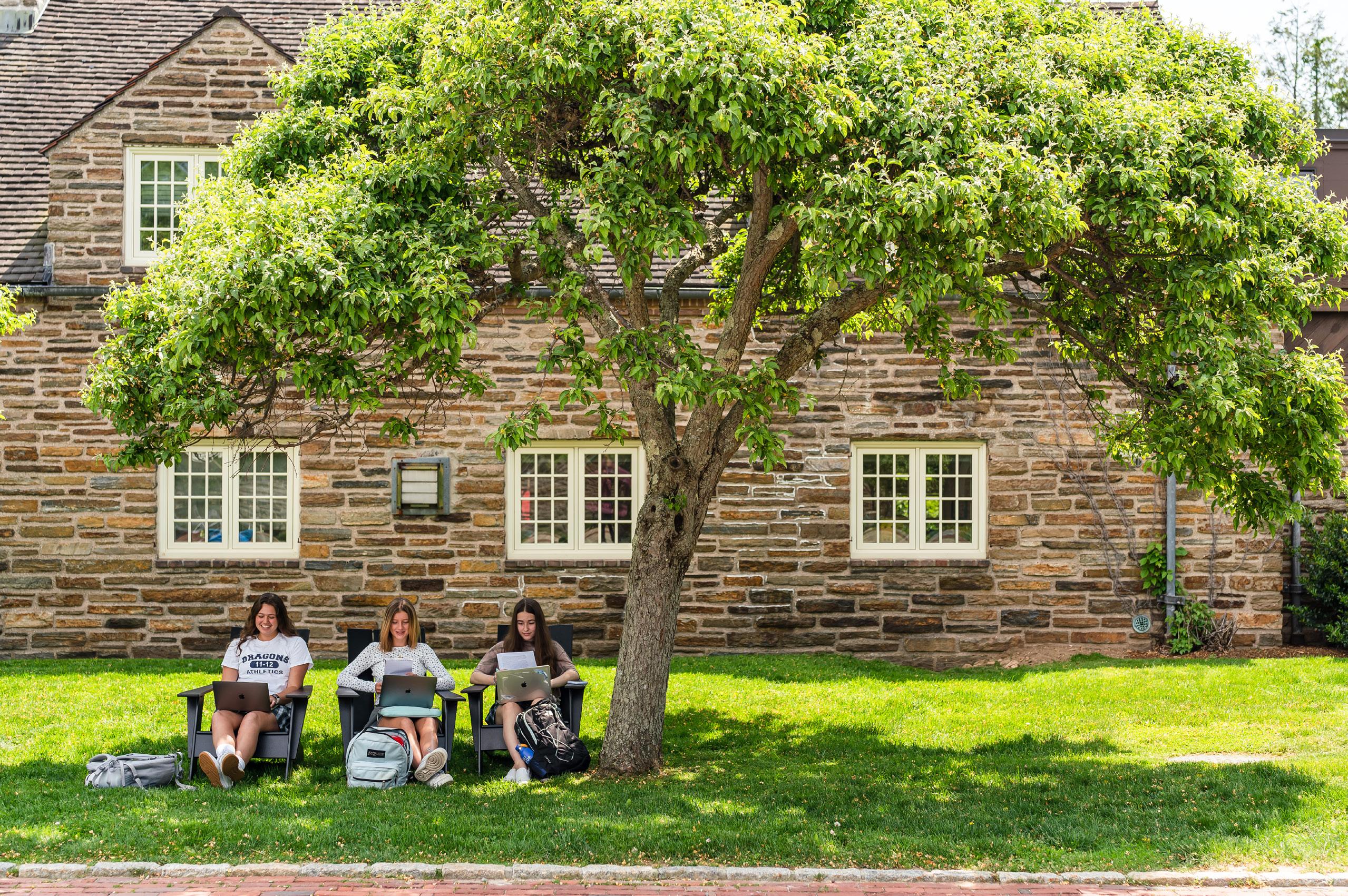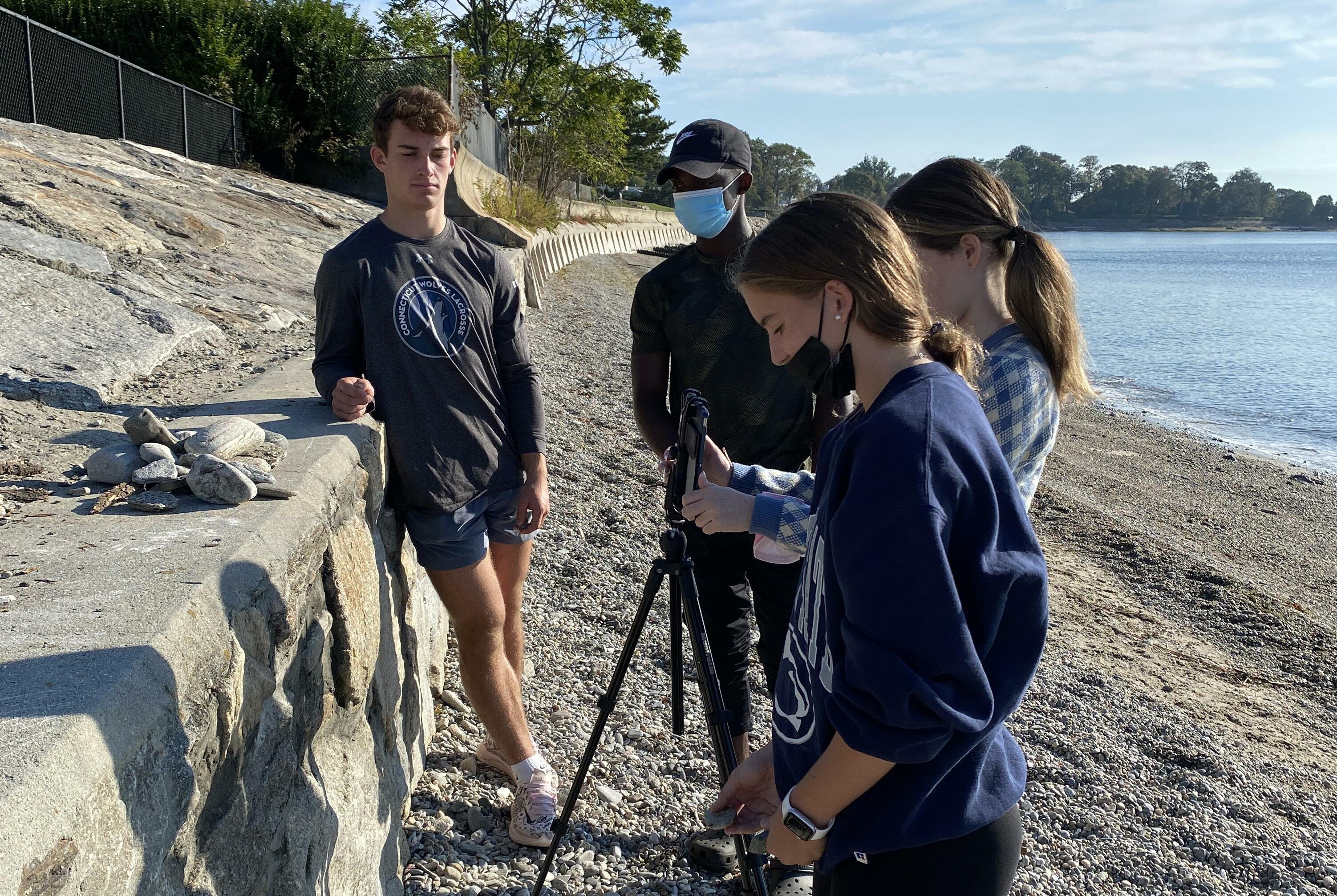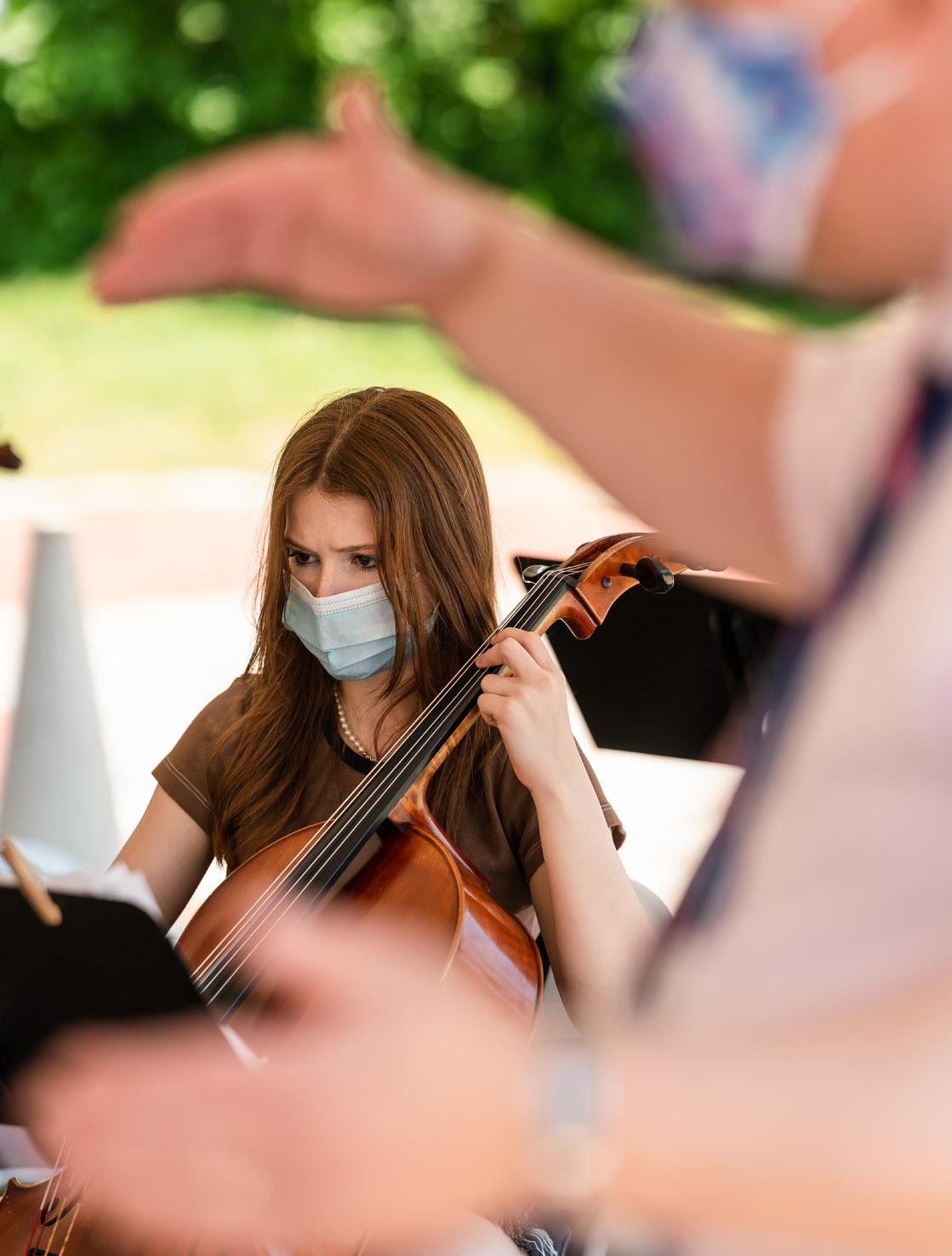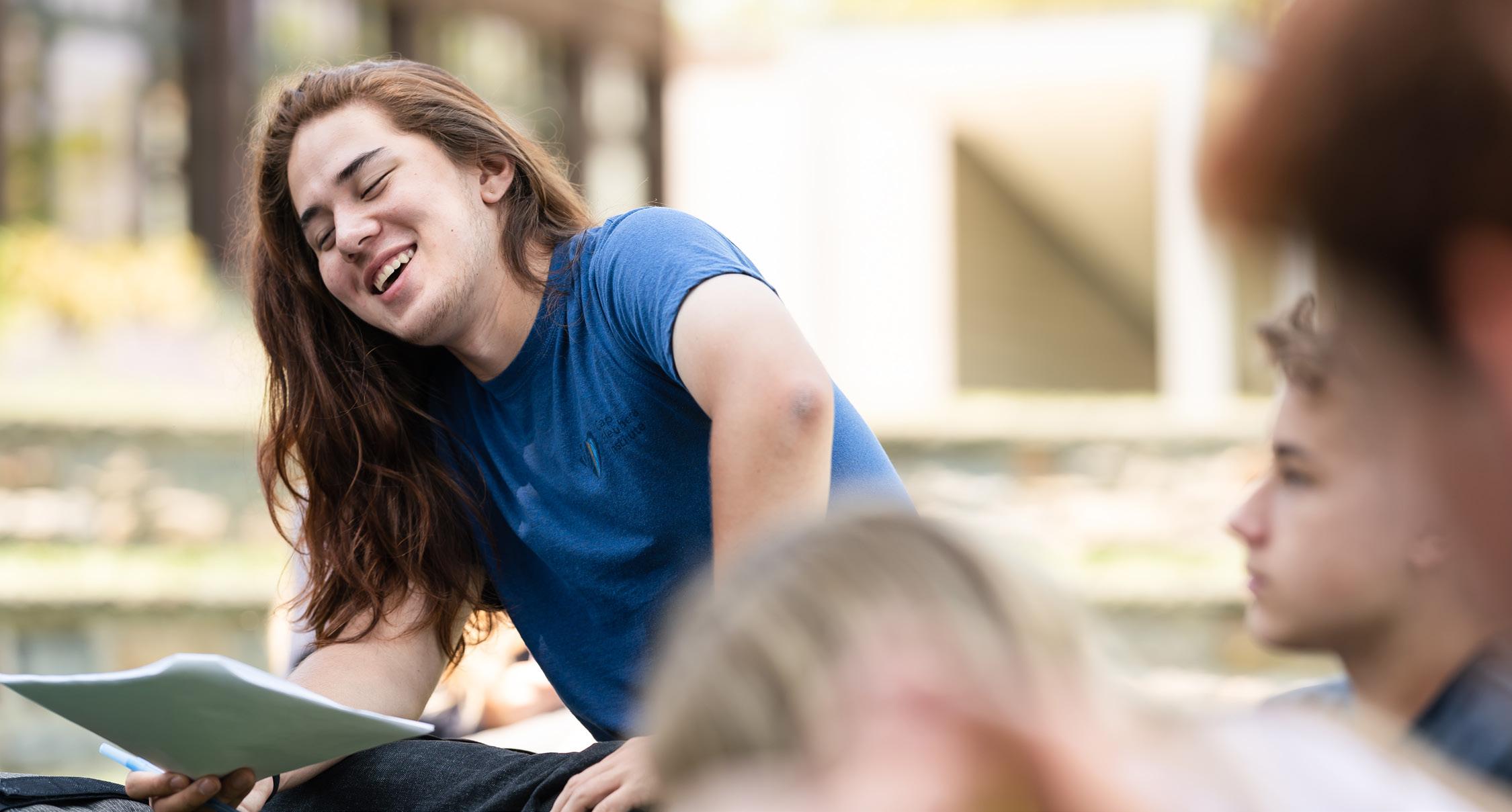
11 minute read
Science
missions between them, students will propose a project through which they can further express their vision and voice, and partner with the instructor(s) to fully develop the project. They will submit an academic paper with the dramaturgical rationale for the choices they made, based on relevance to both the piece and their creative vision. The project culminates in a final presentation to an appropriate audience. Prerequisite: Advanced Theatre. Open to 12th-graders. (1 credit; full year)
SCIENCE
SCI250 bIology
This is the first required course in our science curriculum. Students will explore how humans and other living things stay alive, evolve, and interact. Using interdisciplinary thematic units, students will learn about important foundational biology topics, including evolution, ecology, metabolism, cell biology, genetics and physiology. Students will learn to think like scientists through practice with data, inquiry-based labs and case studies. Students will also learn how to think critically, evaluate experimental data and use scientific reasoning to write strong scientific arguments. Typically taken in 9th grade. (1 credit; full year)
SCI400 ChEmIStry
This course is designed to provide students with an understanding of the fundamental principles of chemistry. Units of study include classifying and quantifying matter, atomic structure, bonding, chemical reactions and stoichiometry, energy in reactions, and water and solution chemistry. Student-directed activities such as student-centered group learning activities, simulations, and laboratory work are integral parts of the course. Projects give students an opportunity to examine the applications of chemistry in society. Typically taken in 10th grade. (1 credit; full year)
SCI450 ChEmIStry
This course is designed to provide a strong background in inorganic chemical principles. The major topics of study include atomic structure, chemical reactions, stoichiometry, periodicity, chemical bonding, forces and theories of matter, solutions, thermodynamics, equilibrium, acid-base chemistry, and redox reactions. Brief units on additional topics such as nuclear chemistry or organic chemistry may also be explored. Laboratory experiences provide students with hands-on opportunities to study the topics covered during lecture. This course has a strong emphasis on problem-solving, critical thinking, and collaborative learning. Prerequisites: grade of B+ or higher in math, B or higher in honors math; departmental permission. Typically taken in 10th grade. (1 credit; full year)
SCI500 phySICS
This course is an introduction to the principles of physics through a conceptual- and algebra-based approach. Topics include a traditional study of mechanics—kinematics, Newton’s laws, energy, momentum, gravitation and other mechanical concepts. In addition to basic physical principles, the course examines the role of physics in society. The course has a conceptual and interactive approach, with frequent hands-on laboratories, activities, and projects; real-world applications; and problem-solving. Prerequisites: Biology and Chemistry; concurrent enrollment in or completion of Algebra 2. (1 credit; full year)
SCI550 phySICS
This course investigates the traditional topics of motion, momentum, energy, light, electricity, magnetism, and atomic and nuclear physics. Emphasis is placed on applying math techniques to problem-solving and developing basic principles from analysis of lab work. Prerequisite: concurrent enrollment in or completion of Pre-Calculus H, or A- or better in Pre-Calculus; departmental permission. (1 credit; full year)
SCI550 marInE SCIEnCE: loCal
In this course, we will focus on the local marine and coastal environment — the “nature of GFA — by exploring and learning about each of the three ecosystems right in our backyard: the Sound, beach, and marsh. This introduces many topics (physical, chemical, and biological) that we explore in more detail as the semester progresses, and prepares us for our regular monthly surveys and other fieldwork. These surveys allow them to hone their data collection and analysis skills. In addition to conducting their own research, students will also be exposed to current marine science research and the researchers that work in the field. At the end of the semester they will spend time with the data collected throughout the year and present it in an authentic and creative way for their final project. Prerequisite: Biology. (.5 credit, 1st semester)
SCI550 marInE SCIEnCE: global
In this course, we will take a more global focus on the oceans. Students will engage in fieldwork and take time to explore and learn in our backyard ecosystems but our labs and activities will also investigate global ocean ecosystems and issues with a focus on ways in which human activities influence the oceans. The units in this course may include oyster reefs, coral reefs, noise pollution, and marine debris, among other topics. As in Marine Science: Local, we will continue conducting regular monthly surveys to hone their data collection and analysis skills. Students will also be exposed to current marine scientist research and the researchers that work in the field. Prerequisite: Biology. (.5 credit, spring semester)
SCI550 aStronomy
This semester elective focuses on understanding how the laws of physics have led to our current understanding of the universe. Students investigate classical astronomy, astronomical instruments, and the solar system. Composition of the sun and stars, the evolution of stars, the big bang, and relativity are also discussed. Assessments include labs, several major tests, and several short presentations. There may be a field trip to a local observatory and observations of any special celestial events, i.e. solar or lunar eclipses. (.5 credit; 2nd semester)
SCI650 aDvanCED ECology anD EnvIronmEntal SCIEnCE
Naturalist Aldo Leopold noted that the greatest challenge facing humanity is to learn to live in a place without destroying it. Students in this interdisciplinary science course will use scientific principles, content and methodologies to learn about how the natural world functions and how humans interact with the planet. They will study local and global environmental problems, including human population growth; air, water, and noise pollution; climate science; and problems causing global change, including ocean acidification, ozone destruction, and acid deposition. Critical-thinking skills will be applied to evaluate risks associated with these problems and to identify and examine sustainable solutions for resolution and prevention of such problems. The ecology, natural history, and human impacts of Long Island Sound will feature prominently in the course content. Prerequisites: Biology and Chemistry. (1 credit; full year)
SCI650 aDvanCED bIology
This course is designed to offer interested students a solid foundation in college-level introductory biology with a focus on inquiry-based learning. The students will develop an appreciation for the study of life and be able to ask and answer questions about the world around them in order to understand the unifying principles within our diverse biological world. Experimentation and project work models various fields of biology, ranging from the molecular focus of genetics to ecological systems. Students examine a selection of topics in considerable depth, focusing on the interconnections and complexity of living systems. Students are expected to take substantial initiative and responsibility for their learning in and out of class. Coursework emphasizes the development of collaborative skills and the application of ideas explored in the course. Prerequisites: Biology and Chemistry; departmental permission. (1 credit; full year)
SCI650 aDvanCED ChEmIStry
This course is modeled after a college chemistry course. It is structured around six science practices that develop students’ skills involving models and representations, questioning and methods, model analysis, math routines, analyzing data, and argumentation, and the unifying ideas of scaling quantities, structure and properties, transformation, and energy as foundations of course content and the connected enduring understandings by design framework. It focuses on some areas of chemistry not previously explored in our first-year chemistry course, as well as topics that will be explored in greater depth, including atomic structure, molecular and ionic structure, and intermolecular forces; chemical reactions; kinetics; thermodynamics and their applications; equilibrium; and acids and bases. Prerequisites: Biology and Chemistry; departmental permission. (1 credit; full year)

SCI650 aDvanCED phySICS: mEChanICS
This college-level course is designed for those students with a keen interest in physics and a solid background in mathematics. Calculus is used extensively. The course covers the topics of a first-semester college class (Mechanics), and much of the material is discussed from a theoretical point of view. Analytical and problem-solving skills are developed, and lab work is more open-ended than in previous science courses. The class will also give an introduction to computer programming with practical applications in numerical methods and Computational Physics. Students may choose to sit for the AP Physics exam for the topic at the end of the year. Prerequisites: Biology, Chemistry; concurrent enrollment in or completion of AP Calculus AB or BC; departmental permission (1 credit; full year)
SCI750 aDvanCED phySICS: ElECtrICIty & magnEtISm
This college-level course is designed for those students with a keen interest in physics and a solid background in mathematics. Calculus and computer programming are used extensively. The course covers the topics of a second-semester college class (Electricity & Magnetism), and much of the material is discussed from a theoretical point of view. Analytical and problem-solving skills are developed, and lab work is more open-ended than in previous science courses. Students may choose to sit for the AP Physics exam for the topic at the end of the year. Prerequisites: Advanced Physics: Mechanics; completion of AP Calculus AB or BC; departmental permission. (1 credit; full year)
INQUIRY IN SCIENCE
SCI650 InquIry: human ECology anD SuStaInabIlIty
This course is an exploration of what it means to live well in a place. We will start with discussions about sustainability and formulate our own thoughts on what sustainability is and what a sustainable school looks like. A major focus of this course will be for students to identify and lead units with small projects that connect and demonstrate an understanding of the interdisciplinary threads of this program and aim to move the school forward with regard to its sustainability. Students identify the units we pursue and subsequently the projects we complete. They lead discussions in each unit, many of which will involve learning from members of the GFA community. Topics for the units in this course may in-
clude but are not limited to ecosystems, water, pollution, infrastructure, energy, and waste. This course prepares students to pursue an Advanced Inquiry in Sustainability. Prerequisites: Biology; departmental permission for students in 10th grade. (0.5 credit; full year)
SCI750: InquIry: human ECology anD SuStaInabIlIty 2
This course is for students who wish to continue doing sustainability work after completing SCI650E Inquiry: Human Ecology and Sustainability. Students may continue working on an earlier project or may design and carry out another project in human ecology or sustainability (HES) that connects and demonstrates understanding of the interdisciplinary threads of HES. They may also assist with student projects and discussions with students in SCI650. There are many different options for the field of inquiry within their project and options for this project. The form of each student’s work and presentation will vary depending on the endeavor. Students in this level of Inquiry will likely present their work at the World Perspectives Symposium, and potentially other venues such as a Film Festival, Sustainability Conference, Town Forum, etc. Class time will be in support of student work and the instructor will guide student projects and facilitate feedback and troubleshooting. This course may serve to further prepare students for an Advanced Inquiry in Human Ecology and Sustainability. Prerequisites: SCI650 Inquiry: Human Ecology and Sustainability and departmental permission. (0.5 credit; full year)
SCI850 aDvanCED InquIry: human ECology anD SuStaInabIlIty
Students have the opportunity to carry out an original, action-based project in human ecology or sustainability (HES) that connects and demonstrates understanding of the interdisciplinary threads of HES. There are many different options for the field of inquiry within their project. Class time will be in support of student work and the instructor will guide student projects and facilitate feedback and troubleshooting amongst the whole class as the projects progress. The form of each student’s work and presentation will vary depending on the endeavor. Students will present their work to an appropriate audience--typically at the World Perspectives Symposium, but perhaps including other venues such as a Film Festival, Sustainability Conference, Town Forum, etc. This is a unique opportunity to capture the energy and passion of students coming back from Chewonki, Island School and HMI. Open to 12th-graders. Prerequisites: Inquiry: Human Ecology and Sustainability plus an additional semester of relevant coursework (Advanced Environmental Science, Marine Biology, Oceanography, Human Ecology and Sustainability, Environmental Economics, or off-campus study at Chewonki, The Island School, HMI, or another program approved by the department) .5 credit of the prerequisite may be taken concurrently. (1 credit; full year)
SCI550 InquIry: rESEarCh anD ExpErImEntal DESIgn
This course will expose students to the principles and practices inherent in scientific research. Topics covered include reading and understanding scientific publications, scientific literature searching including citation research, statistical design of experiments, project planning, visual presentation of numeric data, scientific writing, and presentation methods for scientific findings. During the class, students will select a specific project to plan. Assignments will be applications of topics related to the chosen project. The end product of the class will be a complete research proposal, which the student may choose to execute during further research. Prerequisite: Biology; departmental permission. (0.5 credit; 1st or 2nd semester, full year, or summer)
SCI650 InquIry: SCIEnCE rESEarCh 1
Students in this course have the opportunity to conduct the investigation proposed in Inquiry: Research and Experimental Design or start a new project. They will compete at a state science fair, and present their findings at the GFA Symposium. Prerequisites: Biology, Chemistry (may be taken concurrently), Inquiry: Research and Experimental Design, and departmental permission. (0.5 credit; full year, 1st or 2nd semester)
SCI 750 InquIry: SCIEnCE rESEarCh 2
This course is for students who wish to continue executing science research after completing Inquiry: Science Research 1 or seniors who have taken SCI550 Research and Experimental Design. Students may continue working on an earlier project or may design and carry out another original investigation. Students are expected to complete and present their findings at state and/ or national science fairs as well as the GFA Symposium. Prerequisites: Inquiry: Science Research 1 and/or Inquiry: Research and Experimental Design and departmental permission. (0.5 credit; full year)
SCI850 aDvanCED InquIry: SCIEnCE rESEarCh anD ExpErImEntal DESIgn
This course will engage students in the principles and practices of college-level scientific research. It is intended for students who have demonstrated an interest in









